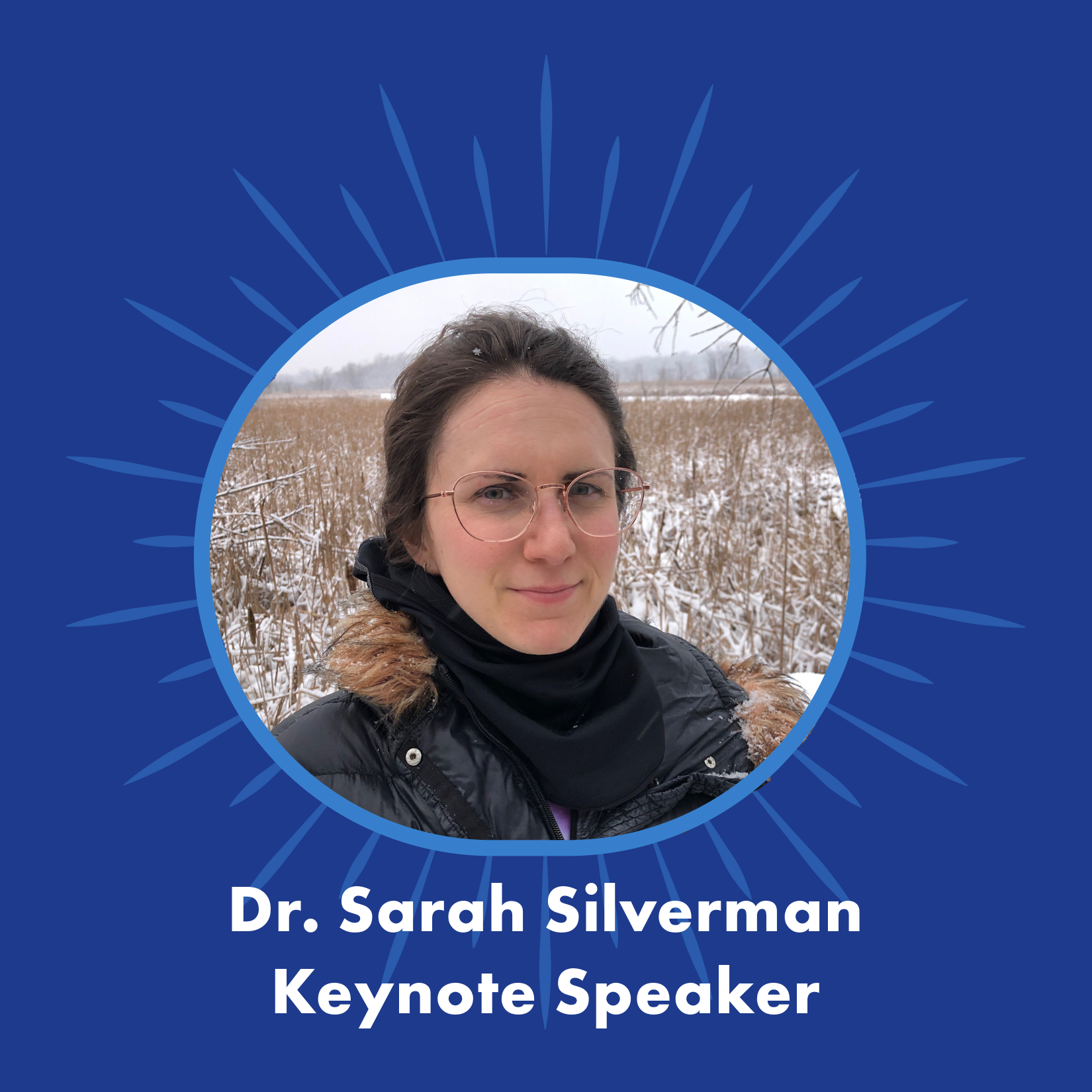- Development Opportunities
-
Excellence in
Online Instruction - Instructional Design
-
Faculty Resources
- New Faculty Essentials
- The FDIP Podcast
- Active Learning in Action
- AI Resources
- AI & Academic Integrity Guidance
- Syllabus Statements
- Infographic Project
- Assessment Strategies
- Faculty Support and Wellbeing
- Student Support and Services @ EIU
- Faculty Online Resources
- FDIC Kaltura Video Gallery
- Faculty & Staff Diversity Plan
- Guidance on Respondus and Academic Integrity
- Funding Sources
-
Instructional Technologies
- Digital Accessibility Remediation Request
- Overview
- D2L Brightspace
- Kaltura
- Microsoft Teams
- Office 365
- Adobe Creative Cloud
- Qualtrics
- Respondus
- Turnitin
- Zoom
- CSI Active Learning Classroom Reservations
- Privacy Statements for Instructional Technologies
- Accessibility Statements for Instructional Technologies
- Accessibility Resources for Digital Materials
- About Us
Pedagogy Day
Thursday, March 13, 2025
Pedagogy for All Learners
About the Event
Welcome to Pedagogy Day 2025, a one-day conference hosted at Eastern Illinois University. The purpose of this event is to cultivate a space where faculty and instructors can explore, share, and engage with proven effective practices for teaching and learning at the university level.
The new digital accessibility rules under Title II of the Americans with Disabilities Act (ADA) implemented this past year have sparked significant discussions on college campuses about their impact on faculty and learners across all modalities. These rules formalize what educational developers and instructional designers have long advocated: accommodating the needs and abilities of all learners removes unnecessary barriers to learning.
The theme for Pedagogy Day 2025 is Pedagogy for All Learners, which embraces the unique and shared needs and abilities of every student. Our keynote speaker, Dr. Sarah Silverman, notes, “we can accept and embrace different ways of communicating and thinking while also acknowledging that developing mutual understanding between people can be quite challenging.”
Keynote Speaker
Dr. Sarah Silverman, Ph.D.
Lecturer on Disability Studies, University of Michigan-Dearborn; Adjunct Faculty in Human Services and Communications, Goodwin University; and Independent Instructional Designer.
Dr. Sarah Silverman is a distinguished educator and independent faculty developer specializing in neurodiversity, disability studies, and inclusive instructional design. She currently holds teaching positions at both the University of Michigan, Dearborn and Goodwin University. Her extensive faculty development experience includes work at the University of Michigan, Dearborn, UW Madison, and UC Davis.
An accomplished author, Dr. Silverman is currently writing "An Introduction to Neurodiversity for Educators," forthcoming from the University of Oklahoma Press as part of their Teaching, Engaging, and Thriving in Higher Ed series. She regularly conducts workshops and presentations on disability, neurodiversity, and inclusive pedagogy, and shares her expertise through her newsletter "Beyond the Scope," which explores advanced topics in teaching and learning.
Dr. Silverman's research interests focus on the intersection of feminist and disability-informed pedagogies, the ableist biases in educational technologies, and neurodiversity history and theory. She has emerged as a leading voice in the movement against academic surveillance technologies, notably co-authoring influential work on alternatives to remote proctoring during the COVID-19 pandemic. Her commitment to inclusive education extends beyond theory into practice through her development of an innovative asynchronous short-course on neurodiversity for higher education professionals.
Schedule
Time |
Session |
Location |
| 9:00 - 9:15 a.m. | Welcome and Overview | Doudna Recital Hall |
| 9:15 - 10:15 a.m. | Keynote: Why we should embrace accessible course design?: On the potential of accessibility and the problems of "retrofitting" Dr. Sarah Silverman |
Doudna Recital Hall |
| 10:15 - 10:25 a.m. | Break | |
| 10:25 - 10:40 a.m. | Troubleshooting Course Struggles Using Universal Design for Learning (UDL) Kim Ervin |
Doudna Recital Hall |
| 10:45 - 10:55 a.m. | Conversation Starters Before Class to Foster Belonging Dr. Jeffrey Stowell |
Doudna Recital Hall |
| 11:00 - 11:25 a.m. | Teaching All Minds: UDL and Neurodivergence in the College Classroom Dr. Misty Rhoads, Logan Lehmann, Kim Ervin |
Doudna Recital Hall |
| 11:25 - 11:30 a.m. | Morning Wrap-up and Afternoon Preview | Doudna Recital Hall |
| 11:30 a.m. - 1:00 p.m. | Lunch Break | |
| 1:00 - 1:50 p.m. | Concurrent Session 1 | |
| Paper Session: | ||
| Designing for the Diverse Learner: Leveraging Cognitive Load Theory and Multimedia Learning to Enhance Information Representation Dr. Kelly Best |
Charleston/Mattoon MLK Jr University Union |
|
| Active Learning to Solve Wicked Problems Dr. Andrew Kerins and Dr. Michael Gillespie |
Charleston/Mattoon MLK Jr University Union |
|
| Integrating Critical Reading with Digital Literacy in the Classroom Dr. Lydia Craig |
Charleston/Mattoon MLK Jr University Union |
|
| Neurodiversity for Educators: An introduction to history, theory, and practice Dr. Sarah Silverman |
Arcola/Tuscola MLK Jr University Union |
|
| 2:00 - 2:50 p.m. | Concurrent Session 2 | |
| Building Bridges in Virtual Spaces: Community and Engagement in Online Courses Dr. Nina Dulabaum and Dr. Misty Rhoads |
Charleston/Mattoon MLK Jr University Union |
|
| Novel Student Engagement Opportunities: Collaborating with Booth Library Steve Brantly, David Bell, Kirstin Duffin, Michele McDaniel, and Amy Odwarka |
Charleston/Mattoon MLK Jr University Union |
|
| Neurodiversity for Educators: An introduction to history, theory, and practice Dr. Sarah Silverman |
Arcola/Tuscola MLK Jr University Union |
For detailed session descriptions and a map, view the complete Pedagogy Day 2025 Program [PDF]. A QR Code to this program will be provided on the day of the event. No print copies will be distributed.
Registration
While participation in this event is free, registration is required to ensure adequate space and resources for all attendees. Please register by March 6 to help us prepare for your participation.
This event is hosted by the Faculty Development and Innovation Center (FDIC)
Eastern Illinois University
Charleston, Illinois 61920
Questions? Contact us at fdic@eiu.edu or call 217-581-7051


